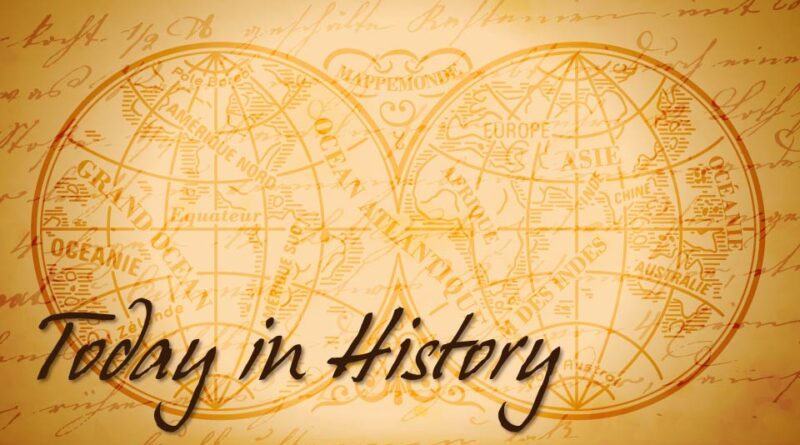Today in History: Nigeria, Africa, and Beyond
This Day in History: August 20
History is more than a record of dates and events—it is a mirror that reflects where humanity has been, how cultures have thrived, and the struggles and victories that shaped nations. Every day carries its own weight in history, and August 20 is no exception. From the rich traditions of Nigeria to milestones in Africa and far-reaching global events, today is woven with meaning. As the African proverb says: “Until lions have their own historians, the history of the hunt will always glorify the hunter.” Let us, therefore, revisit August 20 with open eyes, honoring both our heritage and the wider world.
Nigeria and African Heritage
Ìṣẹ̀ṣe Day – A Celebration of Tradition
August 20 holds deep cultural significance in southwestern Nigeria. It is marked as Ìṣẹ̀ṣe Day, a public holiday dedicated to honoring Yoruba traditions and the Orishas (deities). First declared in Osun State in 2014, the day has since gained recognition in Lagos, Ogun, and Oyo States, where it is observed as a work-free day for public servants.
The celebration underscores the pride of the Yoruba people in their ancestral religion, traditional attire, songs, dances, and the reaffirmation of identity. It serves as a reminder that culture is not to be forgotten but passed on as a living heritage. In 2025, Lagos State officially declared August 20 a public holiday, further cementing its significance as a symbol of cultural pride and unity.
Nigerian Figures in History
On August 20, 1922, Tai Solarin was born in Ikenne, Ogun State. Solarin became a renowned educator, author, and social critic, famous for his progressive reforms in education and advocacy for truth and selfless service. His legacy is still remembered across Nigeria’s academic and social institutions.
While not tied exactly to this date, Nigeria’s history also recalls the 1897 Lagos Strike, one of the earliest organized labor movements against colonial wage practices. It remains a landmark in the story of Nigerian workers’ rights.
Broader African Context
Across Africa, August has always been a month of cultural awakenings. The August Meeting among the Igbo in southeastern Nigeria is another significant tradition around this time. Igbo women return to their ancestral homes to discuss development projects, family unity, and empowerment. This shows that African societies have long had indigenous systems for governance and community development.
Global and Historical Highlights
Science and Exploration
On August 20, 1975, NASA launched Viking 1, a spacecraft that would later make history as the first successful mission to land on Mars. This achievement expanded human knowledge of the red planet and demonstrated mankind’s thirst for discovery beyond Earth.
Wars and Politics
On August 20, 1794, the Battle of Fallen Timbers was fought in the United States, effectively ending Native American resistance in the Northwest Territory. Though a victory for the U.S. Army, it reminds us of the heavy losses endured by indigenous peoples.
Read Also: The Water Had No Mercy”: Pakistan’s Northern Villages Devastated by Deadly Floods
On August 20, 1993, the Oslo Accords were finalized in Norway. This marked a turning point in the Israeli Palestinian conflict, leading to the establishment of the Palestinian Authority in parts of Gaza and the West Bank.
Human Stories
On August 20, 1804, Sergeant Charles Floyd, a member of the Lewis and Clark expedition, died. His passing was significant as he was the only fatality in the entire journey across uncharted American territory—a testament to both the danger and resilience of human exploration.
International Observances
World Mosquito Day is celebrated globally on August 20. It commemorates Sir Ronald Ross’s 1897 discovery that mosquitoes transmit malaria—a disease that continues to affect millions worldwide. The day highlights the ongoing global fight against mosquito-borne illnesses.
In India, August 20 is observed as Sadbhavana Diwas (Harmony Day), commemorating the birth anniversary of former Prime Minister Rajiv Gandhi. It promotes peace, harmony, and national integration.
Conclusion
The tapestry of August 20 reminds us that history is not just about grand battles or scientific triumphs, but also about culture, spirituality, and the quiet strength of tradition. In Nigeria, Ìṣẹ̀ṣe Day calls us back to our roots; in Africa, cultural gatherings like the August Meeting remind us of community-driven leadership; and globally, we see milestones in exploration, diplomacy, and public health.
As the African proverb teaches: “When the roots are deep, there is no reason to fear the wind.”
So too must we ground ourselves in history, for it is from strong roots that future generations will draw their strength.
Content Credit | Olaoluwa Ayomide
Image Credit | google.com




